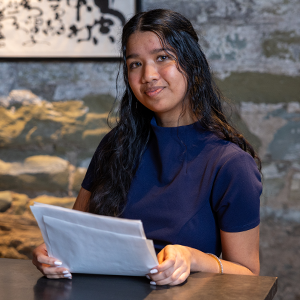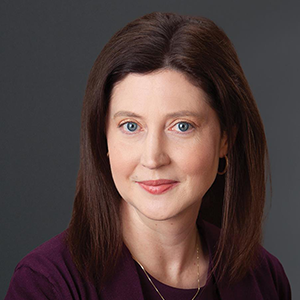Medical physicist receives top award

Dr. Saiful Huq is the 2023 recipient of the William D. Coolidge Gold Medal Award, the highest award of the American Association of Physicists in Medicine (AAPM). He received the award for significant contributions in advancing the field of medical physics scientifically and professionally, enhancing the careers of other medical physicists, and demonstrating leadership skills.
Huq, Parkridge Lane, is director of the medical physics division in the department of radiation oncology at UPMC Hillman Cancer Center, and professor of radiation oncology at the University of Pittsburgh School of Medicine. He oversees the medical physics operations at 26 radiation oncology sites within the UPMC Hillman Cancer Center network and provides guidance for medical physics-related services at four UPMC sites in Ireland and Italy. He is a strong advocate for improving the quality of cancer care globally, by educating medical physicists in Africa, South Asia, Eastern Europe, and the Middle East.
In radiation oncology, medical physicists help treat cancer patients with radiation by delivering prescribed radiation doses to the tumors with sub-millimeter accuracy and minimizing the delivery of radiation to healthy tissue. They also do research, develop new techniques for treating tumors, work with physicians to follow the progress of the patient’s cancer, calibrate the multi-million-dollar linear accelerators that deliver the radiation, and are responsible for ensuring safe, accurate use of new technologies for the care of cancer patients.
“I always say the patient gets the best quality of care if there’s a good marriage between the doctors, the physicists and the therapists,” he said.
Huq has trained hundreds of colleagues around the world. Medical physicists play a crucial role in providing safe, high-quality care to cancer patients. “Just a few hours of voluntary work per week by a medical physicist can make a huge difference in the quality of care provided to cancer patients in low- and middle-income countries,” he said.
Huq is the first Bangladeshi American to receive this award. He comes from a family of high achievers in the Bangladesh military and government. “My family is very unique. We were raised to do something good for people,” he said.
Huq earned his bachelors and masters degrees from Dhaka University in Bangladesh and his Ph.D. in physics from the College of William and Mary in Virginia. He has served as president and chair of the board of directors of AAPM at various times. During his time as president, he formed an international council to focus on extending the organization’s influence globally.
“One of the major themes of my acceptance speech was a call for action to ask fellow medical physicists to please give some of their time to global health activities and get involved,” he said.
In the speech, Huq saved special thanks for the support of his wife Marian, as well as their son Sakib, a resident in neurosurgery, and their future daughter-in-law, Nicky, a resident in obstetrics-gynecology, both at UPMC.
Huq spends much of his time helping clinicians around the world learn these techniques. He travels extensively to train and educate physicians in low- and middle-income countries. Nearly every weekend he spends hours on calls with physicians and physicists in Africa, Eastern Europe, and South Asia, discussing ways to enhance the quality of care for cancer patients.
“One of my passions is helping people around the world, cancer patients,” he said. “A patient is a patient, whether you are in the U.S., Africa, or in Bangladesh. I’ve made small contributions working with professionals in various countries. In addition, I have also worked with them to build cancer centers.
“I’ve done a lot of work internationally,” he continued. “Right now we’re working on building a state-of-the-art comprehensive cancer center in Ghana and another one in Tanzania. I built a beautiful cancer center in Bangladesh. It’s very satisfying, but also a lot of work.”





